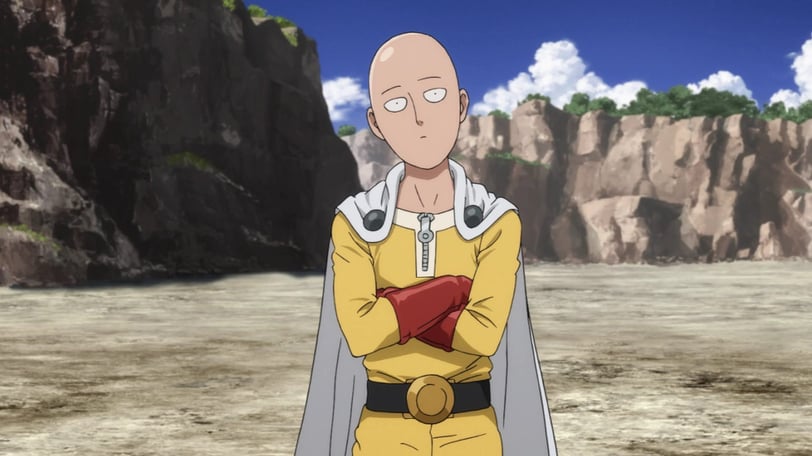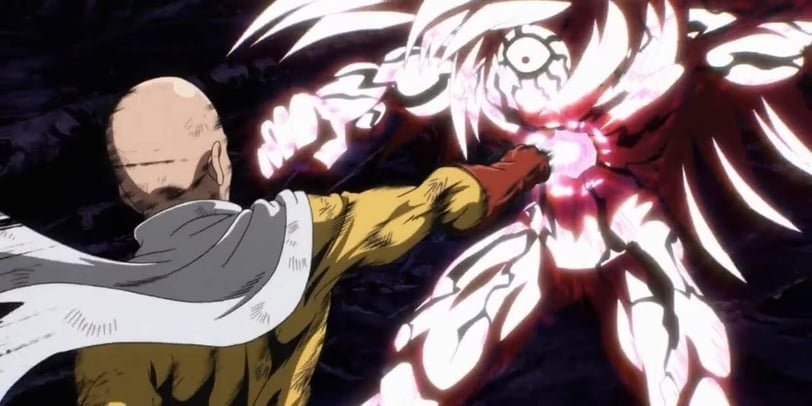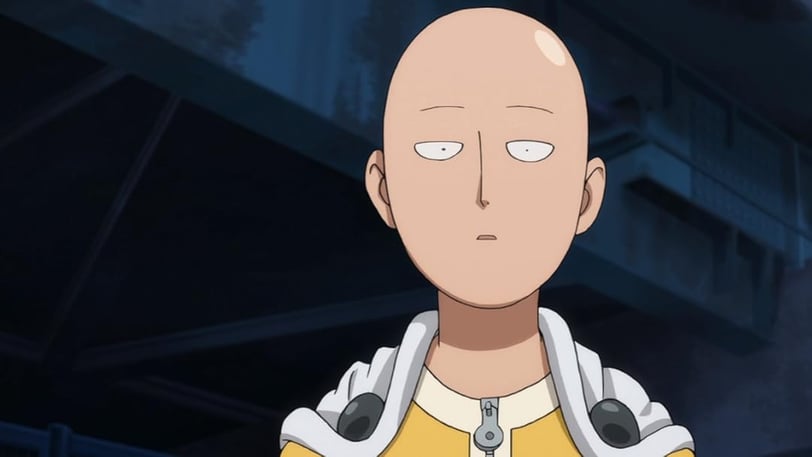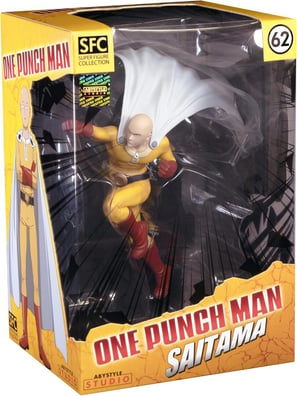The Dark Side of Being Saitama: Why Having Infinite Power Might Actually Suck
What if being the strongest hero was more curse than gift? Discover the emotional weight, boredom, and loneliness behind Saitama’s godlike strength in One Punch Man. 🥊 #OnePunchMan #AnimeDeepDive #SaitamaFeels
ONE PUNCH MAN
Anime Fever
4/9/20257 min read


In the world of anime, One Punch Man stands out as a unique take on the superhero genre. At the center of it is Saitama, a hero so powerful he can defeat any enemy with a single punch. While that might sound like a dream come true, the story takes an unexpected turn—it explores the dark side of absolute power.
Saitama’s strength is unmatched, but instead of glory or satisfaction, he’s left with something far more complex: boredom, loneliness, and a growing sense of emptiness. The more effortlessly he wins, the less meaning those victories hold. There’s no real thrill in fighting when no opponent can truly test you. No sense of progress when you’ve already reached the top.
This article dives into the emotional and psychological weight of being invincible. It’s a reflection on what it truly means to have no limits—and how that can strip away your purpose, motivation, and even your humanity.
What happens when nothing challenges you anymore? That question lies at the heart of Saitama’s journey—and maybe, it’s something we all need to think about.
Saitama's Strength: A Blessing or a Curse?

Saitama, the protagonist of One Punch Man, wasn't always the unstoppable hero we know today. His transformation began with a simple yet relentless training regimen: 100 push-ups, 100 sit-ups, 100 squats, and a 10-kilometer run every single day. This unwavering commitment over three years led him to break through his natural human limitations, granting him unparalleled strength.
In most shonen anime, protagonists embark on arduous journeys, facing formidable foes and overcoming personal weaknesses to grow stronger. This continuous cycle of challenge and growth forms the core of their narratives. Saitama's story, however, deviates sharply from this norm. Achieving ultimate power early on, he finds himself in a state of stagnation. With no room left for growth or meaningful challenges, his life becomes monotonous.
The irony is palpable: the strength he once yearned for now brings him boredom, not fulfillment. Every battle ends with a single punch, leaving him devoid of the thrill of combat and the satisfaction of hard-earned victory. Saitama's experience underscores a profound truth: without obstacles to overcome, even the greatest power can feel meaningless.
The Crushing Weight of Boredom


Saitama, the protagonist of One Punch Man, faces a profound dilemma: his unmatched strength renders every battle monotonous. No adversary poses a genuine challenge, leading to an existence devoid of adrenaline and excitement. The predictability of his one-punch victories strips away any sense of accomplishment, leaving him in a perpetual state of ennui.
This overwhelming boredom permeates his daily life. In one instance, after effortlessly defeating a formidable foe, Saitama is seen grocery shopping, his demeanor unchanged, as if the battle held no significance. In another scene, he lounges watching television, the heroic feats blending seamlessly into his mundane routine. These moments underscore the emotional void he experiences; the thrill of battle has evaporated, replaced by a numbing tedium.
The emotional toll is profound. Without challenges to overcome, Saitama grapples with a sense of purposelessness. His unparalleled power, rather than being a source of fulfillment, becomes a burden, isolating him from the very experiences that give life vibrancy. The narrative poignantly illustrates that without obstacles, even the most potent abilities can lead to a hollow existence.
Loneliness at the Top: No One Truly Understands Him

Saitama, the protagonist of One Punch Man, exists as a "god among men", possessing unparalleled strength that sets him apart from humanity. While this immense power enables him to defeat any adversary effortlessly, it also creates a profound disconnect between him and those around him. Even Genos, his most devoted disciple and closest companion, cannot truly comprehend the depth of Saitama's abilities or the existential void they have engendered.
Throughout the series, subtle yet poignant scenes underscore Saitama's isolation. In moments of solitude, such as when he sits alone in his modest apartment, the weight of his loneliness becomes palpable. These instances reveal that his unmatched power has not brought him fulfillment but has instead erected barriers to forming meaningful connections.
The irony is evident: the very strength that elevates Saitama above all others also serves to alienate him, rendering genuine relationships elusive. His experiences highlight a profound truth: without the shared struggles and vulnerabilities that typically bond individuals, even the most powerful can find themselves profoundly alone.
No Growth, No Struggle: The Death of Motivation

Saitama, the protagonist of One Punch Man, represents a reversal of the typical shonen hero growth arc. While most protagonists in this genre become stronger through hard-earned effort, Saitama reached the peak of his power far too early, eliminating any real possibility of further development. This lack of obstacles has stripped him of goals and a clear path forward, leaving him directionless.
The irony is striking: many fans dream of having unlimited power, but Saitama longs to feel something again—the rush of a true challenge, the excitement of struggle. His unmatched strength has trapped him in a cycle of existential emptiness, where every battle is predictable and devoid of meaning. This stagnation affects not only his actions but also has deep psychological consequences, as he begins to question the very purpose of his existence.
The Burden of a Hero Without Challenge

Saitama, the protagonist of One Punch Man, continues his role as a hero, but his actions stem more from habit than genuine passion. The thrill that once accompanied his heroic endeavors has faded, leaving behind a routine devoid of excitement. This monotony is further compounded by the lack of recognition he receives; despite his unparalleled feats, he garners neither fame nor gratitude, only the indifference of the public.
Throughout the series, there are instances where Saitama's heroism goes unnoticed or is even mocked. After defeating the formidable Deep Sea King, instead of being celebrated, Saitama faces skepticism and ridicule from bystanders who question the authenticity of his victory. Such moments underscore the disconnect between his monumental efforts and the lack of appreciation he receives.
This persistent lack of acknowledgment takes a toll on Saitama's sense of self-worth. Performing heroic deeds without recognition or appreciation leads him to question the meaning of his actions. The absence of external validation, combined with the absence of personal fulfillment, results in a profound existential crisis. Saitama's journey highlights the emotional burden of possessing unparalleled strength in a world that remains largely oblivious to his contributions.
Philosophical Take: The Existential Crisis of Omnipotence


Saitama, the protagonist of One Punch Man, mirrors the existential dilemmas faced by mythological and literary figures endowed with limitless power, such as Superman or the ancient gods. While omnipotence grants unparalleled abilities, it often strips life of its intrinsic meaning. For Saitama, the absence of formidable challenges leads to a profound sense of nihilism—when everything becomes effortless, achievements lose their value. This paradox is evident: he has saved the world countless times, yet each victory deepens his disconnection from the joy and purpose that once motivated him.
Conclusion
Saitama’s story in One Punch Man challenges the traditional fantasy of unlimited strength. While his infinite power makes him unbeatable, it comes at a steep emotional cost—boredom, loneliness, isolation, and a deep lack of fulfillment. What many see as the ultimate gift turns out to be a burden that strips life of its excitement and meaning.
Through Saitama, the series shows us that real strength isn’t just about being the most powerful. It’s about having a purpose, goals, and a sense of connection to others. Without these, even the strongest person in the world can feel empty.
In the end, One Punch Man isn’t just a parody of superhero tropes—it’s a philosophical reflection on the human condition. Saitama may have conquered every enemy, but his greatest battle is the one within.
Power isn’t everything. Purpose is.
FAQ – Everything You Need to Know About the Dark Side of Being Saitama
1. Why is Saitama’s power considered a curse?
Because his overwhelming strength has made life boring and unfulfilling. He defeats every opponent with a single punch, which removes the thrill, challenge, and sense of accomplishment that most heroes live for. Instead of feeling powerful, Saitama feels empty.
2. Isn’t being the strongest supposed to be a good thing?
In most stories, yes. But One Punch Man flips that idea on its head. Saitama's invincibility actually leads to emotional detachment, loneliness, and a lack of purpose—proving that ultimate power can come with unexpected downsides.
3. Why doesn’t Saitama enjoy being a hero anymore?
Because there’s no excitement left. Every fight ends too quickly, and no one truly appreciates his efforts. He saves the world, then goes home to eat instant noodles in complete obscurity. Without a challenge or recognition, the role of "hero" feels pointless.
4. How does Saitama’s situation compare to other anime protagonists?
Unlike typical shonen heroes who grow stronger through hard work and personal growth, Saitama hit his peak from the start. While others evolve, he stays the same—leading to stagnation instead of development.
5. What emotional impact does his power have on him?
Saitama experiences depression-like symptoms: apathy, boredom, and a desire to feel anything again. He even admits to being miserable, despite being the strongest. His battles are external, but his real fight is internal.
6. Why can’t anyone relate to Saitama’s struggle?
Because no one is on his level. Not even Genos, his loyal disciple, can understand what it’s like to be so powerful that life loses its meaning. This leads to deep isolation—he’s surrounded by people, yet utterly alone.
7. Does Saitama even want to be stronger?
No. He doesn’t seek more power—he seeks a feeling. A moment where he’s challenged, where his heart races again. He’s chasing emotion, not power. That’s the real tragedy.
8. How does the world treat Saitama despite his power?
With indifference or even mockery. He often gets no credit for saving cities or defeating villains. People praise others while ignoring the true savior, which adds to his feeling of being invisible.
9. What deeper themes does Saitama’s journey explore?
His story explores themes like nihilism, existential dread, and the paradox of perfection. It asks: what happens when you have everything you thought you wanted—but still feel nothing?
10. What can fans learn from Saitama’s struggles?
That meaning in life doesn’t come from being the best. It comes from challenges, connection, growth, and purpose. Saitama teaches us that true strength lies not in power—but in the journey to find purpose.
If you want the figure of Saitama, click in the image below!


